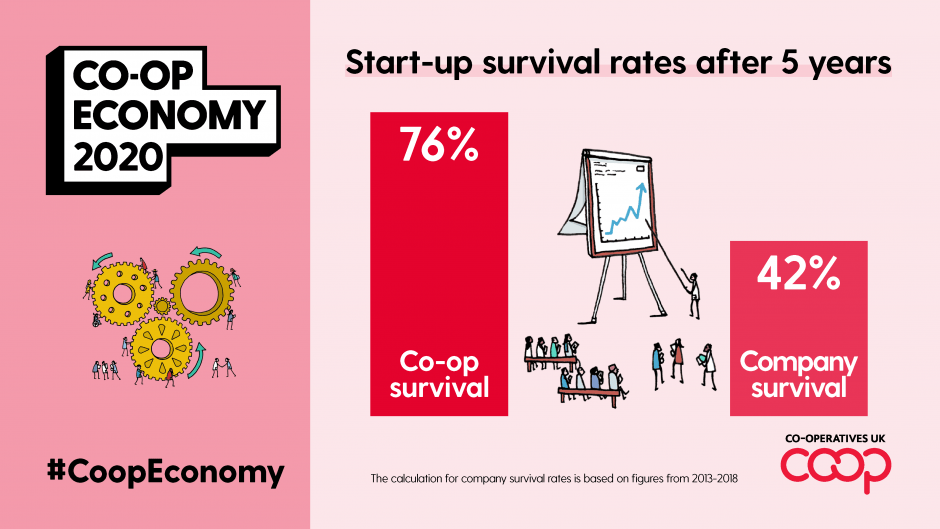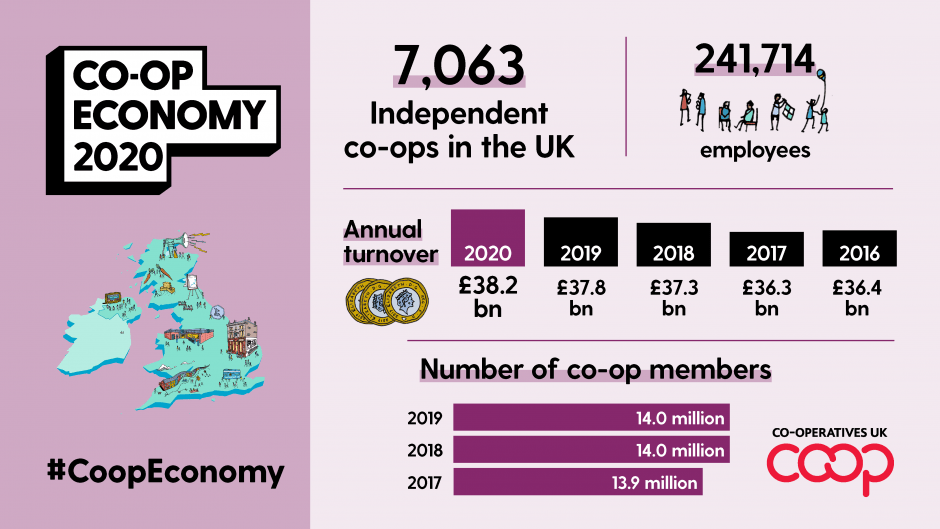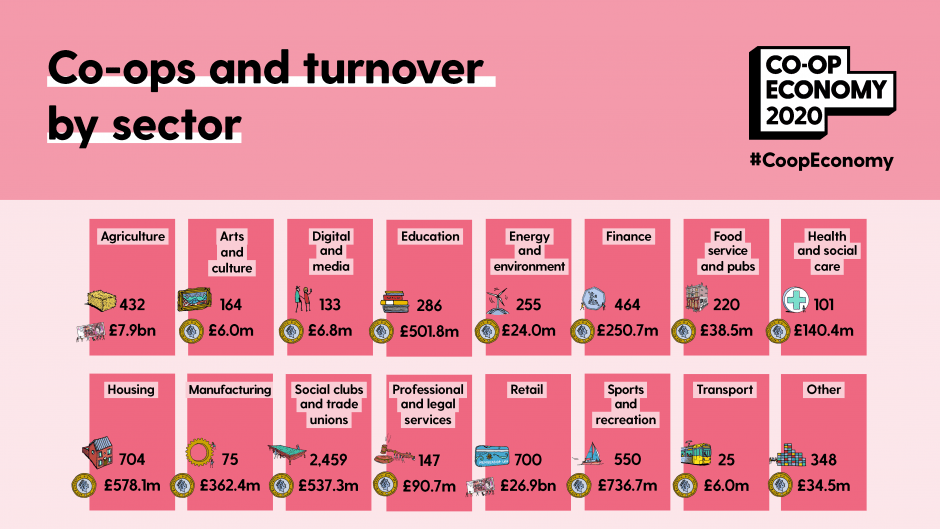Co-operative businesses are better placed to weather the post-lockdown economic storm, according to the 2020 Co-operative Economy Report.
Published today (5 June 2020) by Co-operatives UK, the report says co-ops have almost double the chance of surviving their first five years: 76% of co-ops (up from 72% in 2019), are still operating after the difficult first five years of existence, while just 42% of all new companies make it beyond five years.

“Co-ops are more resilient because they are created to meet the needs of their members. As owners, those members – customers, suppliers and/or workers – have a vested interest in the success of the co-op over the long term,” reads the report. “Crucially, those same members all have a say in how the business is run.”
Co-operatives UK, which has analysed data from thousands of co-op businesses using a range of data sources, adds that while the UK is facing tough economic conditions as a result of COVID-19, during the crisis millions of people have participated in and benefited from solidarity and mutual aid. “Co-ops can help the UK build back better by giving people better options in the way they consume, earn a living and do business.”
The UK’s co-ops operate across all sectors, from community-owned pubs and fan-owned football clubs to organisations operating in retail, agriculture and professional services. Nearly 250,000 people are employed by co-ops, and over 14 million people – the equivalent to more than a fifth of the UK population – are members of a co-operative.
But there are only 7,063 co-operative businesses, which is less than 1% of the total number of businesses operating in the UK. This needs to change, says Co-operatives UK: “As we look towards a post-COVID-19 world, and consider how to make businesses more robust, more resilient and fairer, the answer must be a more co-operative economy.”

Nick Matthews, chair of Co-operatives UK, added: “There’s an appetite for a different economy to emerge from this crisis, with many people talking about the need to ‘build back better’. If we are to rebuild a fairer economy, provide decent livelihoods and support communities we need more co-ops, mutuals and social enterprises, not less. And there’s compelling evidence to show that new co-ops are built to last.”
Member-focused businesses across sectors
According to the report the top three sectors by turnover are retail (£26.9bn), agriculture (£7.9bn) and sports/recreation (£736.7m), while those with the highest number of businesses are social clubs/trade unions (2,459), housing 704) and retail (700). The document also includes a list of the UK’s top 100 co-operatives by turnover, placing the Co-op Group top (£10.9bn), followed by the John Lewis Partnership plc (£10.2bn) and farmer-owned Arla Foods (£2.6bn).

“Co-ops already play an important role in the social and economic fabric of our country, and the Co-op Economy report illustrates that they are well placed to face into the difficult economic conditions that lie ahead in the post lockdown world,” said Steve Murrells, CEO of the Co-op Group
He added that which all businesses now face unprecedented challenges, “the fact that many co-ops have community-based ownership means more people are invested in their long-term success”.
Throughout the coronavirus crisis, co-operatives in all sectors have stepped up to support communities. The Co-op Group, for example, established a Members’ Coronavirus Fund to support foodbanks, addressed funeral poverty and helped local causes, by creating temporary jobs for more than 7,000 people out of work and through launching Co-operate, an online community centre.
“We didn’t need to invent a local Community Fund, appoint hundreds of Member Pioneers to support communities, or develop a Community Wellbeing Index to provide unique local insight,” added Mr Murrells. “Those assets were already in place because our purpose extends beyond maximizing commercial profits.”
Read the 2020 Co-operative Economy Report in full at www.uk.coop/economy